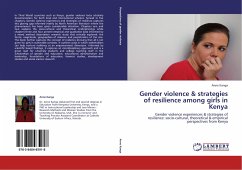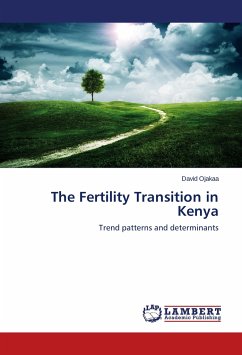
Gender violence & strategies of resilience among girls in Kenya
Gender violence experiences & strategies of resilience: socio-cultural, theoretical & empirical perspectives from Kenya
Versandkostenfrei!
Versandfertig in 6-10 Tagen
52,99 €
inkl. MwSt.

PAYBACK Punkte
26 °P sammeln!
In Third World countries such as Kenya, gender violence lacks scholarly documentation for both local and international scholars. Spread in five chapters, Gender violence experiences and strategies of resilience captures this glaring gap informed mainly by North American literature where the phenomenon has been given considerable attention. Chapters one and two explains the socio-cultural and theoretical underpinnings while chapters three and four present empirical and qualitative data informed by a mixed method dissertation research study that critically explored: the forms, magnitude, geograp...
In Third World countries such as Kenya, gender violence lacks scholarly documentation for both local and international scholars. Spread in five chapters, Gender violence experiences and strategies of resilience captures this glaring gap informed mainly by North American literature where the phenomenon has been given considerable attention. Chapters one and two explains the socio-cultural and theoretical underpinnings while chapters three and four present empirical and qualitative data informed by a mixed method dissertation research study that critically explored: the forms, magnitude, geographies of violence and perpetrators of the vice. The book further captures the concept of resiliency showing that all is not gone for girls in vulnerable contexts. It outlines ways in which stakeholders can help nurture resiliency as an empowerment dimension. Informed by scientific based findings, it captures an interdisciplinary approach and is a great read for university students and collegeteaching staff in the scholarships of gender and education, educational administration and leadership, foundations of education, feminist studies, development studies and social science research.












